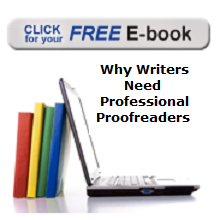Is Getting to Know You Hyphenated?
The get-go recorded hyphen showed up in the piece of work of Dionysius Thrax, the original grammarian. Back and then, information technology was a tie-similar (‿) sign used to join two words that ane would otherwise accept read separately. Then came letter-spacing in the Middle Ages, and the hyphen came to symbolize a connector betwixt ii words that had been incorrectly spliced by a space. We have Johannes Gutenberg to give thanks for the mod version of the hyphen. When setting his famous Bible, his tools wouldn't let him include the hyphen below letters, and then he moved it up to the heart of the line (Wikipedia). In the span of 562 years, reasons to use a hyphen have changed dramatically, particularly as computer screens took over. Today, many people struggle with whether or not to utilise a hyphen (Encounter? You're not lonely!), to the point that some grammarians call it a "look-it-up" punctuation marking. At that place will still be times when you desire to double-cheque yourself, but the most important tip to remember is that hyphens seek to remove ambiguity. If a phrase is confusing without a hyphen, or syntax could go many means, go ahead and stick that footling horizontal line in in that location. Compound Modifiers Let'due south start with a definition. A chemical compound modifier is a group of two or more words connected by a hyphen, which together human action equally a single adjective. Obviously, the job of adjectives is to alter nouns, but compound modifiers add a level of detail. For example, a high-quality kite. Hither the fabric and build of the kite are top-notch. Whereas without the hyphen, we're describing a squeamish kite that'southward flying at a high altitude. In this example, a hyphen is crucial to avert confusion over exactly what this kite is like, and what it's doing. When Compound Modifiers Follow the Word They're Modifying If the hyphenated phrase comes after the word or words it's modifying, hyphens are usually unnecessary. If you're unsure, try adding a hyphen and taking it out to meet if the clarity of the sentence changes. For instance, a question that'southward open ended is just as straightforward equally a question that'southward open-ended. Therefore, you tin can exit the hyphen out and salvage it for a better time. Some way books, among them AP, wisely call for hyphenating compound modifiers after a class of the verb to be: The homo is well-known. The eatery was second-charge per unit. Exceptions But, as with nigh every attribute of grammer and punctuation, in that location are exceptions. The nigh mutual exception is when the compound is a familiar one, and therefore clear of defoliation. In the example The high school tournament drew a oversupply of hundreds, it's non necessary to add a hyphen betwixt high and school to modify tournament because high school is a familiar ii-discussion term. Numbers and Ages The rule here is pretty clear. If the age is being used as an adjective or substantive, hyphens are necessary. In the instance The eighty-year-one-time adult female hugged her grandson, eighty-yr-one-time is modifying woman. With implied nouns, y'all'll likewise want to add hyphens, as in the instance Agatha is an lxxx-year-erstwhile. The historic period phrase is still modifying the noun, even though it doesn't announced in the sentence. Prefixes Whether or non to use hyphens in prefixes falls under the "is it confusing without" rule. Fortunately, the exceptions are obvious. The hyphen in ex-married woman is necessary to keep the term from looking like a smush of messages – exwife. But a give-and-take like e-mail has get familiar enough that a hyphen is no longer needed. More Handy Uses for Hyphens ● A hyphen should e'er be used to separate a prefix that comes earlier a proper substantive. For example, pro-British. ● Utilize a hyphen to keep the aforementioned messages from running together, as in a notwithstanding-life painting. ● Employ a hyphen when joining a letter with a word, equally in an A-frame house. Never feel bad if you lot accept to double-check yourself on the apply of a hyphen. Hopefully, these tips will help cut downwards on the number of times you lot discover yourself Googling "Is in that location a hyphen in full time?" (Answer: yes)  Don't believe what y'all've heard or seen. The hyphen is non dead. Its use has been failing, just mostly in the realm of joining common nouns. In 2007, the Shorter Oxford English language Dictionary eliminated hyphens from 16,000 entries. Bumble-bee became bumblebee, science books mention examination tube instead of examination-tube, and cry-baby joined to form one discussion.
Don't believe what y'all've heard or seen. The hyphen is non dead. Its use has been failing, just mostly in the realm of joining common nouns. In 2007, the Shorter Oxford English language Dictionary eliminated hyphens from 16,000 entries. Bumble-bee became bumblebee, science books mention examination tube instead of examination-tube, and cry-baby joined to form one discussion.
Topics: hyphenation, hyphen
Source: https://www.proofreadnow.com/blog/how-to-know-when-to-use-a-hyphen
0 Response to "Is Getting to Know You Hyphenated?"
Post a Comment